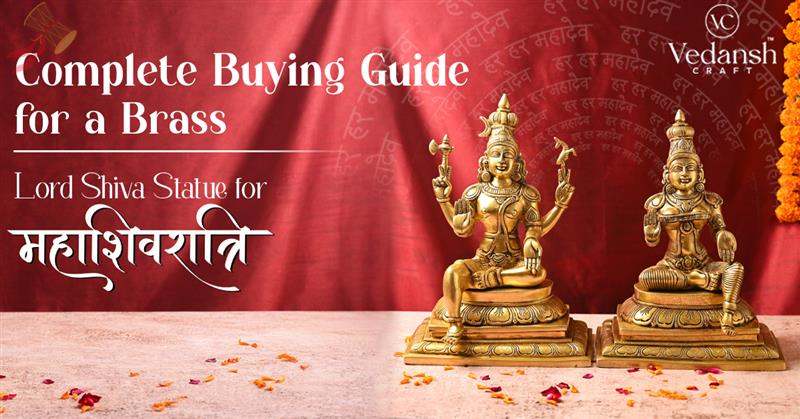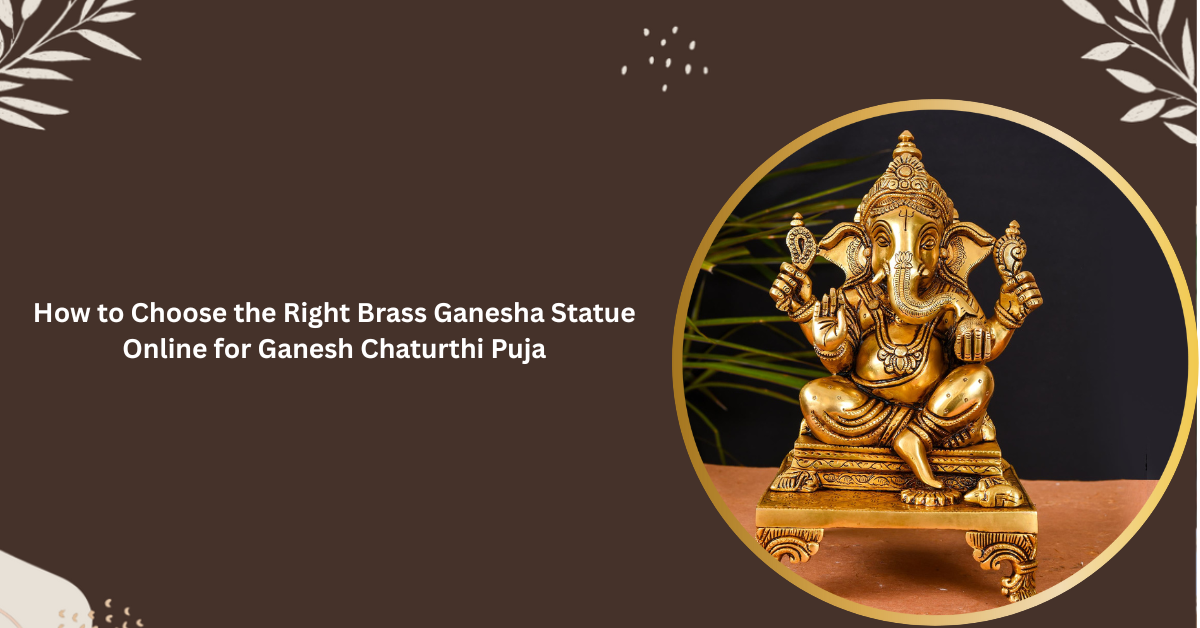

Types of Ekadashi
, by javed techqart, 16 min reading time
Ekadashi is a special day in the Hindu calendar that happens twice a month. It falls on the eleventh day of each lunar fortnight, which means it occurs during both the time when the moon is getting bigger (Shukla Paksha) and when it's getting smaller (Krishna Paksha). People celebrate Ekadashi by worshipping Lord Vishnu, one of the important gods in Hinduism. Some also choose to worship Lord Shiva on this day.
The Hindu calendar has two main phases based on the moon's appearance – one where the moon is getting smaller, and the other where it's getting bigger. Ekadashi fits into both of these phases, creating a regular rhythm of spiritual observance. People come together to pray and seek blessings on this special day.
Ekadashi offers a way for people to connect with the divine and reflect on their spirituality. There are a total of 24 Ekadashis in a regular Hindu year, and 26 when an extra lunar month, Adhik Maas, is considered. This frequency emphasizes how important these days are for millions of people.
Story of Ekadashi Vrata
Once upon a time, a demon named Murdanav tried to harm Lord Vishnu while he was in a deep sleep called Yoga Nidra. But, something magical happened – a beautiful woman appeared from the 11th sense of Lord Vishnu's mind.
Murdanav, captivated by her beauty, wanted to marry her. The woman, now known as Ekadashi, agreed but had a condition. She said that Murdanav had to defeat her in a battle. The demon agreed, thinking it would be easy, but he was wrong. Ekadashi fought bravely and defeated him.
When Lord Vishnu woke up, he saw what had happened and was pleased with Ekadashi's courage. He named her Ekadashi and gave her a special blessing. He said that those who fast on this day – the day Ekadashi defeated the demon – would receive Moksha, which means freedom from the cycle of birth and death.
So, the story of Ekadashi Vrata teaches us about courage, virtue, and the blessings that come to those who observe a fast on this special day.
Types of Ekadashi
-
Nirjala Ekadashi
Also known as: Pandava Bhima Ekadashi, Pandava Nirjala Ekadashi, Bhimseni Ekadashi.
Meaning: Nirjala means “without any water”.
Occurs: On the 11th day of the Shukla Paksha of Jyeshtha month.
Special Feature: Devotees do not drink water on this day, making it the most challenging but sacred Ekadashi.
Blessings: Completion of this vrata is believed to bring the favor of Lord Vishnu, along with happiness, prosperity, and forgiveness from sins.
Date & Time: Jun 17, 4:44 am - Jun 18, 6:25 am
-
Papavimochani Ekadashi
Also known as: Papamochini Ekadashi.
Occurs: On the 11th day of the Krishna Paksha in every Chaitra month.
Meaning: Papavimochani means “the one which removes sins”.
Rituals: The Chaturbhuj form of Lord Vishnu is worshipped.
Blessings: Devotees who observe this vrata are freed from their sins and gain salvation.
Date & Time: Apr 04, 4:14 pm - Apr 05, 1:29 pm
-
Mohini Ekadashi
Occurs: On the 11th day of the Shukla Paksha in the Vaisakha month.
Rituals: Lord Vishnu is worshipped in the form of Goddess Mohini.
Blessings: Fasting on this day is believed to cleanse the person of their sins.
Date & Time: May 18, 11:23 am - May 19, 1:50 pm
-
Kamada Ekadashi
Occurs: On the 11th day of the Shukla Paksha in every Chaitra month.
Meaning: Kamada means “the one which fulfills all desires”.
Rituals: Lord Vishnu is worshipped in the form of Lord Krishna.
Blessings: It is believed to fulfill all worldly desires of the person who observes it sincerely.
Date & Time: Apr 18, 5:32 pm - Apr 19, 8:05 pm
-
Varuthini Ekadashi
Occurs: On the 11th day of the Krishna Pakasha in the Vaisakha month.
Meaning: Varuthini means “protected”.
Rituals: Lord Vishnu is worshipped in the form of Vamana Avatar.
Blessings: Devotees who observe this fast receive protection from various troubles and misfortunes.
Date & Time: May 03, 11:24 pm - May 04, 8:39 pm
-
Apara Ekadashi
Also called: Achala Ekadashi.
Occurs: On the 11th day of the Krishna Paksha of the Hindu month Jyeshtha.
Meaning: Apar in Sanskrit means “limitless”.
Blessings: Those who observe this fast are said to be freed from all their sins.
Date & Time: Jun 02, 5:05 am - Jun 03, 2:41 am
-
Devashayani Ekadashi
Meaning: Devashayani means "god resting/sleeping."
Also known as: Ashadhi Ekadashi in Maharashtra, Padma Ekadashi.
Occurs: On the 11th day of the Shukla Paksha in the month of Ashadha.
Significance: Lord Vishnu rests on Sheshanaga after this Ekadashi, making it the most important one. Thousands of devotees visit Pandharpur on this day for the Darshana of Lord Panduranaga.
Date & Time: Jul 16, 8:34 pm - Jul 17, 9:03 pm
-
Yogini Ekadashi
Meaning: Yogini means "a female Yogi."
Occurs: On the 11th day of the Krishna Paksha in Ashadha month.
Blessings: Observing this fast is considered as virtuous as feeding 88,000 Brahmins. It is believed to free individuals from the cycle of birth and rebirth.
Date & Time: Jul 01, 10:26 am - Jul 02, 8:42 am
-
Kamika Ekadashi
Occurs: On the 11th day of the Krishna Paksha in the month of Shravana.
Meaning: Kamika means "desired."
Rituals: Lord Vishnu is worshipped in the form of Lord Krishna.
Blessings: This vrata is believed to help devotees alleviate the Pitra Dosha.
Date & Time: Jul 30, 4:45 pm - Jul 31, 3:56 pm
-
Shravana Putrada Ekadashi
Also called: Pavitra Ekadashi or Pavitropana Ekadashi.
Occurs: On the 11th day of the Shukla Paksha of Shravana month.
Meaning: Putrada means "the giver of a child (son)."
Blessings: Devotees longing for a child benefit by observing this vrata.
Date & Time: Aug 15, 10:27 am - Aug 16, 9:40 am
-
Indira Ekadashi
Occurs: On the 11th day of the Krishna Paksha in Ashvin month.
Significance: This is the only Ekadashi in the Pitra Paksha, providing salvation to the deceased ancestors of those who observe this vrata.
Rituals: Devotees keep a fast and worship Lord Vishnu and donate various things and money on this day.
Date & Time: Sep 27, 1:20 pm - Sep 28, 2:50 pm
-
Annada Ekadashi
Also known as: Aja Ekadashi.
Occurs: On the 11th day of the Krishna Paksha in Bhadrapada month.
Meaning: Annada means "the giver of food."
Blessings: Devotees observing this vrata receive ample food, wealth, and prosperity.
Date & Time: Aug 29, 1:20 am - Aug 30, 1:38 am
-
Parsva Ekadashi
Also called: Vamana Ekadashi, Jayanti Ekadashi.
Occurs: On the 11th day of the Shukla Paksha in Bhadrapada month.
Significance: Hindus believe that Lord Vishnu changes his sleeping position from left to right on this day, also known as Parsva Parivartini Ekadashi.
Blessings: Observing Parsva Ekadashi is believed to bring happiness and peace.
Date & Time:Sep 13, 10:30 pm - Sep 14, 8:41 pm
-
Pasankusa Ekadashi
Also called: Papankusa Ekadashi.
Occurs: On the 11th day of the Shukla Paksha in Ashvin month.
Meaning: Pasankusa means "noose and goad."
Rituals: Lord Vishnu is worshipped in the form of Lord Padmanabha.
Blessings: Devotees believe they attain all worldly pleasures by observing this vrata.
Date & Time: Oct 13, 9:09 am - Oct 14, 6:41 am
-
Ramaa Ekadashi
Occurs: On the 11th day of Krishna Paksha every Kartik month, just before Diwali.
Significance: Observing this vrata is believed to be as auspicious as performing 1000 Ashwamedha yajnas or 100 Rajasuyra yajnas. Devotees are said to attain worldly happiness and salvation after death.
Date & Time:Oct 27, 5:24 am - Oct 28, 7:51 am
-
Saphala Ekadashi
Occurs: On the 11th day of the Krishna Paksha in Pausha month.
Meaning: Saphala means "successful."
Significance: Observing the vrata of Saphala Ekadashi is believed to bring success in life.
Date & Time:Jan 07, 12:42 am - Jan 08, 12:46 am
-
Pausha Putrada Ekadashi
Occurs: On the 11th day of the Shukla Paksha of Pausha month.
Blessings: Couples, especially those seeking a child, are advised to observe this vrata. It is more popular in North India compared to Shravana Putrada Ekadashi.
Date & Time: Jan 20, 7:27 pm - Jan 21, 7:27 pm
-
Prabodhini Ekadashi
Also called: Devauthani Ekadashi, Kartiki Ekadashi (in Maharashtra).
Occurs: On the 11th day of the Shukla Paksha of Kartik month.
Significance: Lord Vishnu wakes from Yoganidra on this day. The holy festival of Tulsi Vivah is also celebrated. Fasting on this day is believed to remove sins and bring happiness, prosperity, and worldly pleasures. Devotees visit Pandharpur Vitthal Temple in Maharashtra.
Date & Time: Nov 11, 6:47 pm - Nov 12, 4:05 pm
-
Utpanna Ekadashi
Occurs: On the 11th day of Krishna Paksha in Margashirsha month.
Meaning: Utpanna means "birth."
Significance: Goddess Ekadashi was born on this day and saved Lord Vishnu from a demon. Observing this vrata is said to absolve devotees of their past sins. It is considered a suitable day to start observing Ekadashi vrata.
Date & Time: Nov 26, 1:02 am - Nov 27, 3:48 am
-
Vaikuntha Ekadashi
Also known as: Mukoti Ekadashi, Mukhti Ekadashi, Mokshada Ekadashi, Swargavathil Ekadashi (in Kerala).
Occurs: On the 11th day of the Shukla Paksha of Margashirsha month.
Significance: Vaikuntha, the abode of Lord Vishnu, opens its gates for devotees on this day. It is believed to grant the uninterrupted darshan of Lord Vishnu, and it is associated with names like Mukoti or Mukhti Ekadashi.
Date & Time: Mar 06, 6:31 am - Mar 07, 4:14 am
-
Jaya Ekadashi
Also called: Bhaimi Ekadashi.
Occurs: On the 11th day of Shukla Paksha of Magha month.
Blessings: Observers of this vrata are said to be rid of ghostly influences in their lives and are believed to be absolved from all kinds of sins.
Date & Time: Feb 19, 8:50 am - Feb 20, 9:56 am
-
Shattila Ekadashi
Occurs: On the 11th day of the Krishna Paksha of Magha month.
Meaning: Shattila means "six sesame seeds."
Rituals: Sesame seeds are used in six different ways to worship Lord Vishnu on this day. Also known as Tilda Ekadashi.
Blessings: Observers of this vrata are believed to receive prosperity and salvation.
Date & Time: Feb 05, 5:25 pm - Feb 06, 4:07 pm
-
Vijaya Ekadashi
Occurs: On the 11th day of the Krishna Paksha of Phalguna month.
Meaning: Vijaya means "victory."
Significance: Observing this vrata is believed to bring victory in life.
Date & Time: March 6, 2024
-
Parama Shuddha Ekadashi
Also called: Purushottama Kamala Ekadashi.
Occurs: On the 11th day of Krishna Paksha of Adhik Maas.
Significance: This Ekadashi vrata is believed to bring material progress in life and wash away past sins.
-
Amalaka Ekadashi
Occurs: On the 11th day of the Shukla Paksha of Phalguna month.
Meaning: Amalaka means "amla" or Indian gooseberry.
Rituals: Devotees worship the Amla tree, believed to house Lord Vishnu. Amla is known for strengthening the immune system.
Blessings: Those who observe this Ekadashi vrata are believed to receive good luck, prosperity, and happiness.
Date & Time: Mar 20, 12:22 am - Mar 21, 2:23 am
-
Padmini Vishuddha Ekadashi
Occurs: Once in three years during Adhik Maas (extra month added to the Hindu calendar).
Significance: This Ekadashi falls on the 11th day of Shukla Paksha of Adhik Maas. Observing the vrata is said to free devotees from past sins.
Which Ekadashi is Most Beneficial?
Nirjala Ekadashi is considered the most challenging yet powerful and beneficial. On this day, devotees abstain from both food and water, putting their mental and physical strength to the test.
Ekadashi Vrata
It's necessary to fast during Ekadashi. You can eat small amounts of things like fruits.
- Start and End of Fast: Begin fasting at sunrise and end it after sunset. Some Ekadashi fasts require opening the fast on the following day.
- Morning Rituals: Wake up early and take a bath.
- Temple Visit: Visit a temple dedicated to Lord Vishnu or his avatars and offer prayers.
- Worship Lord Vishnu: Offer flowers and other items in worship to Lord Vishnu.
- Spiritual Reflection: Spend the day contemplating on Lord Vishnu, and try chanting his name.
- Avoid Certain Foods: Refrain from consuming alcohol and non-vegetarian food.
- Follow Ethical Practices: Avoid lying, stealing, or causing harm to any living being.
The celebration of Ekadashi Vrata is of devotion, spirituality, and cultural significance in the Hindu tradition. As we traverse the varied types of Ekadashis, each embedded with unique stories and rituals, we discover a rich amalgamation of faith and practice that has withstood the test of time. Ekadashi, with its diverse manifestations, offers solace, blessings, and a sense of profound connection with the cosmic forces that govern existence.
Blog posts




